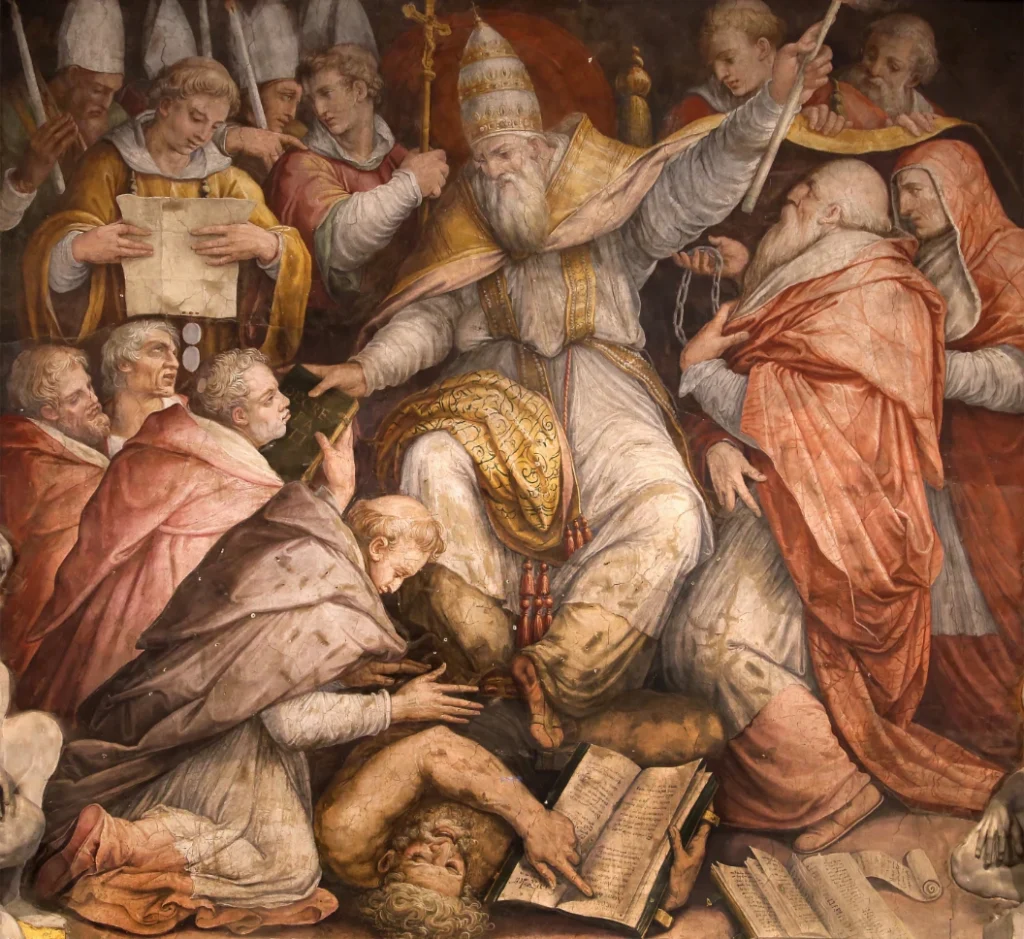Excommunication, a term rooted in ancient religious practices, continues to be a controversial and widely discussed topic within various faith communities. But what exactly is excommunication and what role does it play in the spiritual realm? Is it a necessary tool in maintaining the purity of a religious institution or is it being used as a means of abusing power? Let us delve deeper into this issue from a theological perspective.
What is Excommunication?
Excommunication is a religious practice in which someone is formally excluded from the fellowship of a church or religious community. This can be due to a variety of reasons, such as committing a serious sin or going against the teachings and beliefs of that particular faith. In the Roman Catholic Church, excommunication is known as a “medicinal penalty” that is intended to bring the person back to the right path and encourage repentance. However, in other denominations, it may be viewed as a punishment or a way to rid the community of unwanted members.
Biblical Perspectives on Excommunication
The concept of excommunication can be found in various religious texts, including the Bible. In the Old Testament, we see instances of individuals being banned or excommunicated from the community of Israel for their disobedience to God’s laws. In Exodus 31:14, it states, “Observe the Sabbath, because it is holy to you. Anyone who desecrates it is to be put to death; those who do any work on that day must be cut off from their people.” This verse shows that the act of excommunication was seen as a form of punishment for those who broke God’s commandments.
In the New Testament, Jesus himself speaks about the importance of addressing conflicts within the church in Matthew 18:15-17. He instructs his followers to confront the sin of a fellow believer and if they refuse to listen, to “treat them as you would a pagan or a tax collector.” This can be interpreted as excommunication if the person continues to resist correction and repentance.
The Abuses of Excommunication
While excommunication may have been originally intended as a means of restoring individuals to the right path, it has been used throughout history as a tool for those in positions of power to control and manipulate members of their communities. This act of exclusion and shunning can be deeply damaging to an individual’s well-being and spiritual life. In extreme cases, it has even led to mental health issues and suicide.
Excommunication has also been used as a means of pressuring individuals to conform to certain beliefs or ideologies within a religious community. This goes against the fundamental principle of free will and can cause harm to an individual’s relationship with God.
A Guiding Light to Return to God’s Fold
As Christians, our ultimate goal is to follow in the footsteps of Jesus and lead a life filled with love, compassion, and forgiveness. Excommunication should not be taken lightly and should only be used as a last resort after all other attempts at reconciliation have failed. It should be done with the utmost care and compassion for the person being excluded, with the hope that they will eventually find their way back to the loving arms of God.
Let us remember the words of 1 Corinthians 5:5, “The goal is to make the person ashamed of what they have done. After that, you should forgive and comfort them. If you don’t forgive and comfort them, they might drown in their own despair.” Excommunication should never be used as a means of causing shame or despair, but rather as a way to guide individuals back to the path of righteousness.
Prayer for Guidance
Heavenly Father, we come to you with heavy hearts, knowing that excommunication has been used as a weapon of power and control in some religious communities. We pray for the victims of this abuse and ask for healing and restoration in their lives. Help us to use your teachings as a guiding beacon to lead others back to your loving embrace. Give us the wisdom to handle conflicts within our communities with love and grace, and to always prioritize the well-being of others above all else. Amen.
